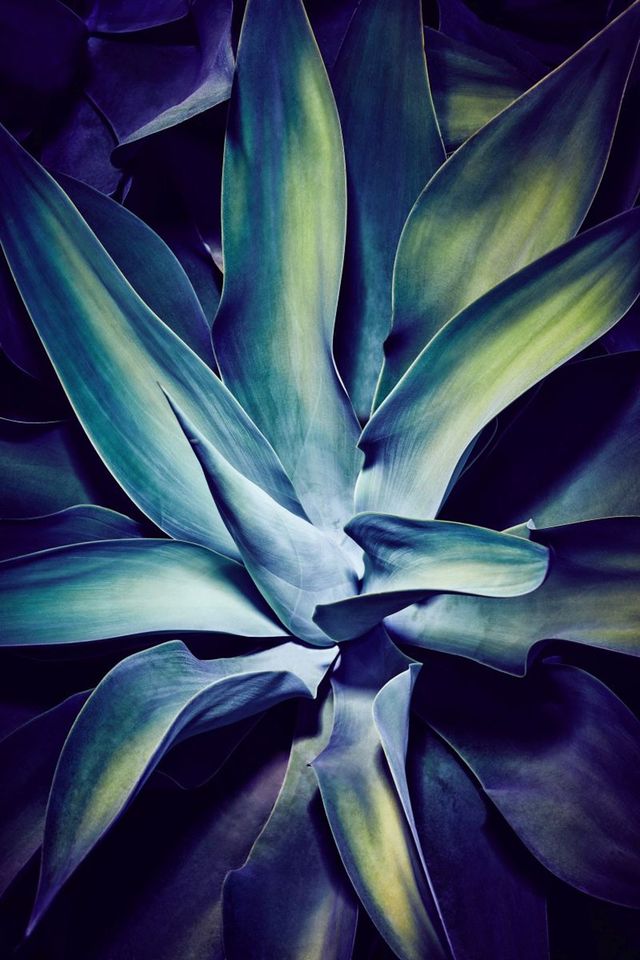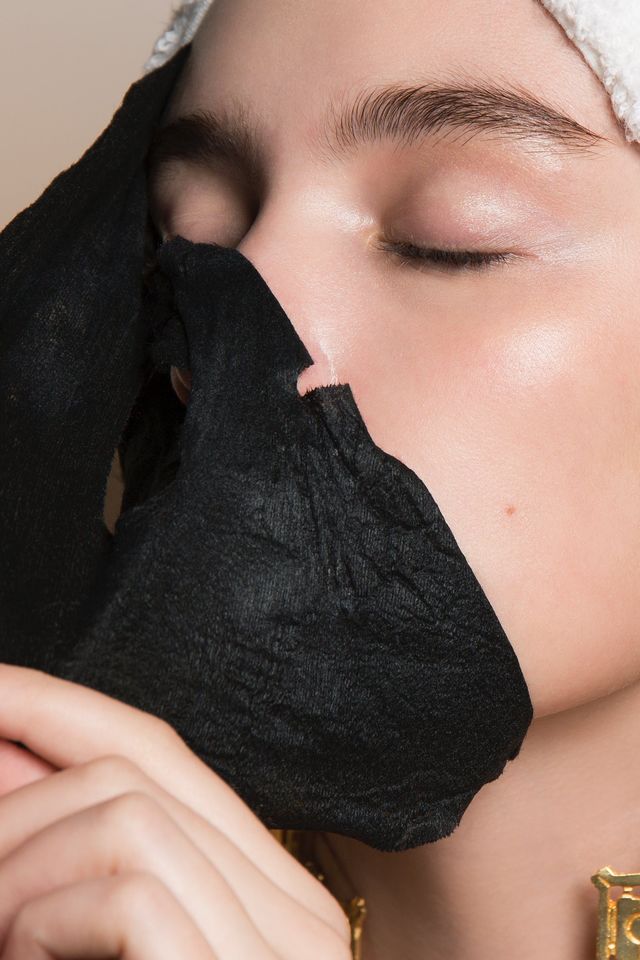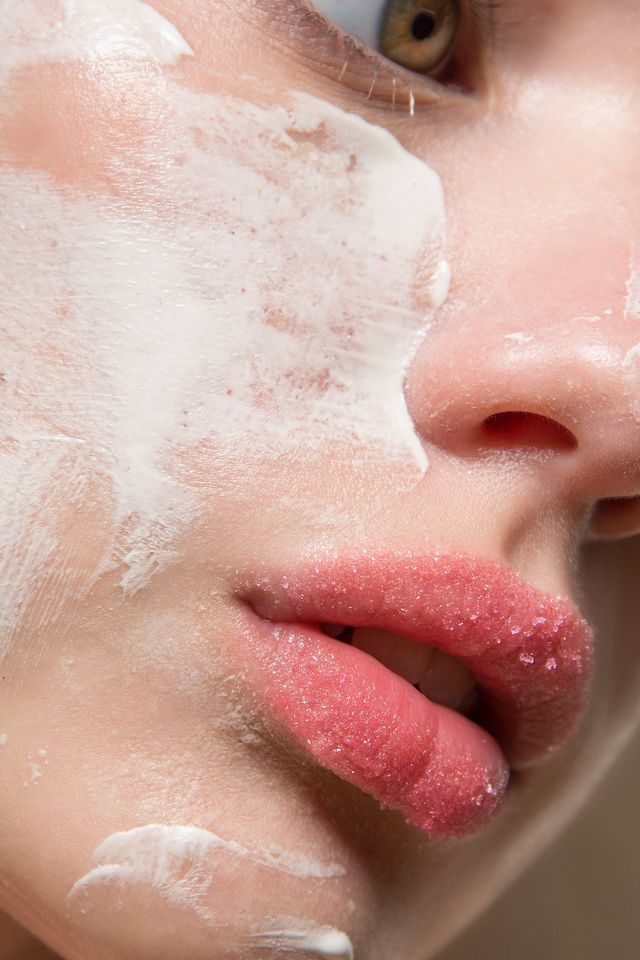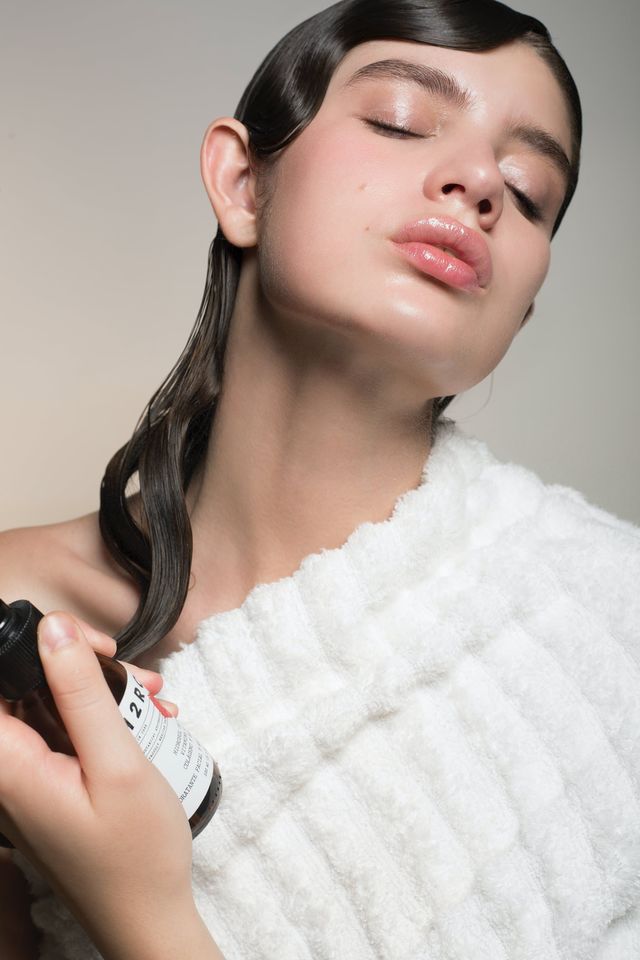
What Does Clean Beauty Actually Mean?
From minimizing pores, banishing wrinkles, and defying age to hydrating, plumping, and exfoliating, we expect our beauty products to do a lot for us. On top of the visible results we hope to see, many also want these products to deliver said skin-saving with clean ingredients that aren't harmful or toxic to our health. The clean beauty movement has grown exponentially in recent years, and has even continued to show market growth as the beauty industry at large takes a hit amidst the pandemic. But the new clean beauty standard for skincare, makeup, and hair care actually has some muddy waters-with all the vocabulary around so-called clean products ("organic," "non-toxic," "vegan," etc.) its becoming more difficult to understand exactly what the labels are saying. Clean beauty also creates the illusion that the alternative offerings are "dirty" or bad for you.
As greenwashing becomes more prevalent in the beauty space, it's important to educate yourself on what products are the right fit for your preferences and needs. Here, L'OFFICIEL gives a comprehensive guide to what clean beauty actually is, and isn't.
Despite increasing consumer demand for clean beauty products, the FDA’s cosmetic regulations have remained unchanged since they were first introduced back in 1938. Currently, only 11 ingredients are banned by the FDA, while the EU has banned well over 1,000. Brands are also technically not required to have FDA approval before going to market, meaning your cosmetics could be packed with harmful ingredients and endocrine disruptors, which are chemicals that have the ability to mimic hormones and mess with your mood, digestion, reproductive cycle, metabolism, and other functions. The beauty industry is also self-regulated, meaning there’s no organization confirming a brand’s clean beauty claims.
While any brand can label itself as “clean,” taking a closer look at labels is one way to protect yourself against products that may do more harm than good. Here are a few ingredients to keep an eye out for.
Ingredients to Avoid
Parabens
A known endocrine disruptor, parabens mimic estrogen in the body. The frequently-used preservative is linked to early onset puberty, thyroid issues, and even cancer. While most cosmetics only use a very small amount of parabens in their formulas, the ingredient is easily absorbed and, through frequent exposure over time, can cause long-term harm.
Fragrances
Perhaps the most ambiguous name on an ingredient list, “fragrance” can refer to thousands of synthetic or natural chemicals, some more harmful than others. While fragrances can cause allergies and other irritations, brands aren’t required to disclose exactly which fragrances are in their formulations, making this ingredient a tough one to avoid.
Phthalates
Phthalates, which help fragrances last, are also a significant endocrine disruptor. Known to cause birth defects, reproductive system issues, and other hormonal problems, phthalates often go hand-in-hand with fragrance on an ingredient list.
Formaldehyde and formaldehyde releasers
Formaldehyde, a known carcinogen, has come under fire in recent years. While some retailers are beginning to ban the ingredient, it’s still found in many nail polishes, lash glues, straightening treatments, and other products. What’s scary about formaldehyde is that you won’t find it on ingredient lists; instead, what you’ll see are formaldehyde releasers, which are preservatives that slowly release the chemical.
Oxybenzone and octinoxate
A common ingredient in chemical sunscreens, oxybenzone and octinoxate are harmful both to your skin and the environment. Linked to coral bleaching, these chemicals might make sunscreens easier to apply due to their lightweight feel and easy absorption, but they are also another endocrine disruptor that can lead to birth defects and hormonal problems. These days, there are plenty of physical sunscreens on the market that provide just as much protection with an equally luxurious application, all without the harmful side effects.
Triclosan
In the past year, we’ve all been obsessively washing our hands and using hand sanitizer. What you may not know is that these products can also contain triclosan, an antimicrobial chemical also known to significantly disrupt the endocrine system and cause antibiotic-resistant bacteria. It’s banned in several countries, and the US has moved to also ban it from hand sanitizers as it isn’t significantly more effective than just using soap and water.
Talc
Talc, a common ingredient in powder cosmetics like blush, bronzer, and eyeshadows, isn’t inherently harmful. However, talc that isn’t purified can become contaminated with asbestos, a known carcinogen. It’s difficult to know just how pure the talc in cosmetics are without testing, so some brands are opting to use mica, cornstarch, and silica instead.
Mineral oil
A byproduct of petroleum, mineral oil is a common ingredient found in all kinds of cosmetics, including Vaseline and Aquaphor. Not only can mineral oil clog pores, but there are concerns that it can carry carcinogenic impurities, not to mention the environmental impact the petroleum industry has on the planet.

Clean Beauty Buzzwords
Under the umbrella of clean beauty, there are plenty of descriptors—organic, all-natural, non-toxic, vegan, cruelty-free, sustainable-that are labeled neatly onto product packaging without any regulations regarding how they’re used. Because the FDA doesn’t control how cosmetics companies market their products, the terms themselves have become subjective and the exact meanings vary by brand. These buzzwords may give the impression that skincare and makeup brands that label themselves as "clean" are safer than others, but that isn’t accurate. While most brands have the best intentions when pursuing the clean route, it’s important to look beyond the label and decipher fact from marketing. Here’s a breakdown on common clean beauty buzzwords, with some help from Victoria Fu and Gloria Lu, the two cosmetic chemists behind Chemist Confessions Inc., who are committed to science-backed skincare and decoding product labels.
Clean
Now often used as a catchall term, clean indicates products made from ingredients that are safe for people and the environment. Clean beauty products will avoid the ingredients covered above, but that doesn’t mean all of the ingredients come from the earth. Being natural and chemical aren't mutually exclusive, and a mix of ingredients can work together for safe and effective clean makeup, skincare, and hair care, which is why Lu says, "Our definition of clean beauty is responsible formulation that is able to marry the best natural and synthetic ingredients and hold up to the highest standards of quality and safety." Moreover, in light of clean beauty being juxtaposed with clinical products, she says, "There are clean beauty brands that can target skin concerns like wrinkles and pigmentation using effective ingredients that aren't on anyone's no-no lists. On the flip side, even though clinical skincare may use ingredients with foreign, chemical names, many of these ingredients can hold up to the most rigorous safety and efficacy testings."
Organic
Certified organic beauty products will bear a USDA Organic Seal, which means that they are at least 95 percent organic and are manufactured without genetically modified organisms. Because the certification is costly for brands, independent labels may list specific ingredients that are organic, even though the product itself may not have the seal. The sourcing of organic ingredients is regulated by the Department of Agriculture, not the FDA, and Fu notes that “most ingredients go through a lot of processing before becoming an actual skincare ingredient” so the organic categorization isn’t quite as farm-to-face as one might think.
All-Natural
This is an unregulated term across the FDA, USDA, and the EU. A product that is all-natural should in theory only have natural, as in plant-based or derived from the earth, elements in its ingredients list, but oftentimes brands can get away with just one or two natural ingredients. Fu says that “plants are actually quite complex, which means more components that can invite allergens. So ‘natural’ by no means directly translates to ‘safer.’” Likewise, there are plenty of synthetic ingredients that help stabilize a product, not only making it more effective, but safer in the long run.
Non-Toxic and Chemical-Free
The non-toxic labeling can be misleading, because every beauty product sold in the U.S. adheres to this. Non-toxic indicates that the ingredients are not harmful at the levels the product is formulated with and for its proper use—in other words, they’re safe for use. Oftentimes, clean beauty brands will use “non-toxic” labeling for products that avoid ingredients that are known as harmful at any levels. According to Fu, “non-toxic” is a “fear-mongering term” in the beauty world. “What really grinds our gears are the ‘chemical-free’ (water is a chemical) and ‘preservative-free’ claims (your skincare can grow mold),” Fu says. It’s more than likely that the last two are used purely for greenwashing.
Vegan
Like with food, vegan beauty products do not contain any ingredients sourced from animals or their by-products, such as beeswax, honey, or lanolin. A vegan product is not necessarily a clean product-it can be animal-free but still be formulated with ingredients that don’t meet the clean criteria.
Cruelty-Free
Indicated by the leaping bunny symbol, this means that the product wasn’t tested on animals. But note, this is not correlated with a product being vegan.
Is Being Clean the Same as Being Sustainable?
Sustainable practices and sourcing have become an important factor in what consumers look for in fashion and beauty. While a product may tout natural ingredients, the sustainability factor is dependent on how the ingredients were sourced, the manufacturing process, and oftentimes, what kind of packaging is used. Environmentally responsible production means that common beauty ingredients like palm oil aren’t being over-harvested or causing deforestation or the disruption of natural environments. Sustainable beauty can also mean that the products are safe for the environment after-the-fact, such as reef-safe sunscreen, which protect coral reefs and other sea life from chemical pollution from ingredients found in the product.










